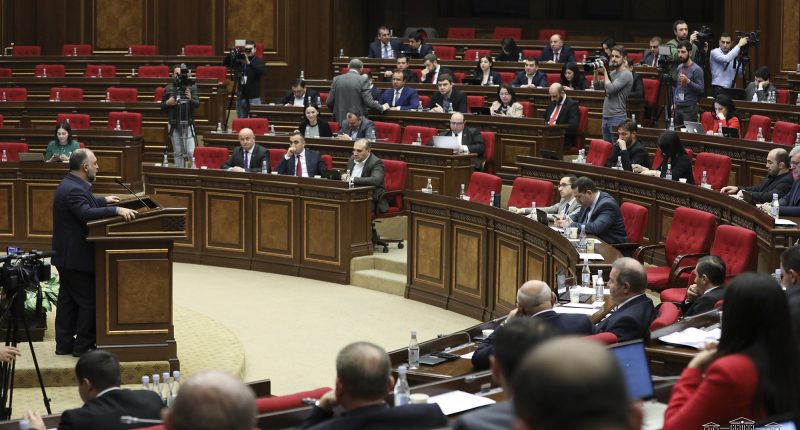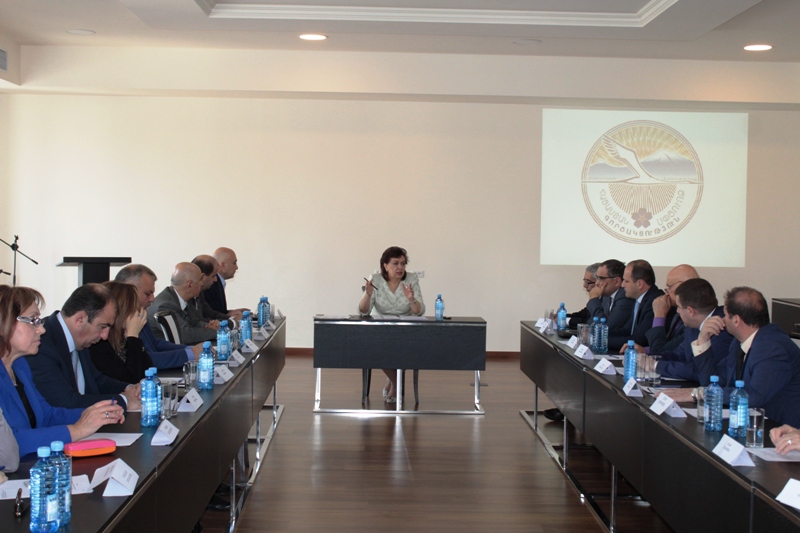YEREVAN– Armenia’s parliament passed in the first reading on Thursday a government bill allowing authorities to confiscate private properties and other assets deemed to have been acquired illegally.
Under the package of legal amendments drafted by the Armenian government late last year, prosecutors will be able to investigate individuals in case of having “sufficient grounds to suspect” that the market value of their assets exceeds their “legal incomes” by more than 25 million drams ($52,400).
Should the prosecutors find such discrepancies they can ask courts to nationalize those assets even if their owners are not found guilty of corruption or other criminal offenses. The latter will have to prove the legality of their holdings if they are to retain them.
Minister of Justice Rustam Badasyan said the draft law was evaluated by eight international organizations and calls for the introduction of a mechanism for pre-trial confiscation of illegally acquired property. He said the charges of illegally acquired property can be refuted by the defendants if they provides legal grounds for acquiring it.
Badasyan noted that this mechanism in various forms has been introduced in Italy, Iceland, Australia, Bulgaria, Slovenia and the United Kingdom. “The draft law aims to adopt the best practices in the fight against asset trafficking, proposed by international organizations and reference documents,” he said.
“Nobody beyond this circle can fall under the jurisdiction of this law except in cases where assets were artificially registered in a particular person’s name,” Badasyan told lawmakers.
He said also a study into the legality of one’s property may be started if such signals emerge during consideration of criminal cases. Badasyan stated that property is subject to confiscation if the owner cannot prove that a property worth more than 25 million drams (about $ 52.2 thousand) is justified by legal sources of income.
Part of the confiscated property may be released from custody by a court order so that the defendant has the opportunity to pay for housing and the services of a lawyer.
The draft law also indicates that an amicable settlement is possible at a certain stage, and it is noted that the subject of the agreement cannot be less than 75% of the cost of the unjustified property.
Regarding the fact that the draft law has retroactive force, Badasyan noted that in one of the cases the European Court of Human Rights indicated that since the mechanism applied does not bear the character of punishment, the court did not consider the retroactive effect of the law unacceptable.
The bill was tentatively backed by 100 members of the 132-seat National Assembly. They included deputies from the ruling My Step bloc and the opposition Bright Armenia Party (LHK).
BHK Prosperous Armenia Party (BHK) deputies abstained in Thursday’s parliament vote. They said that their party will propose changes to the bill











1 comment
That seems very reasonable